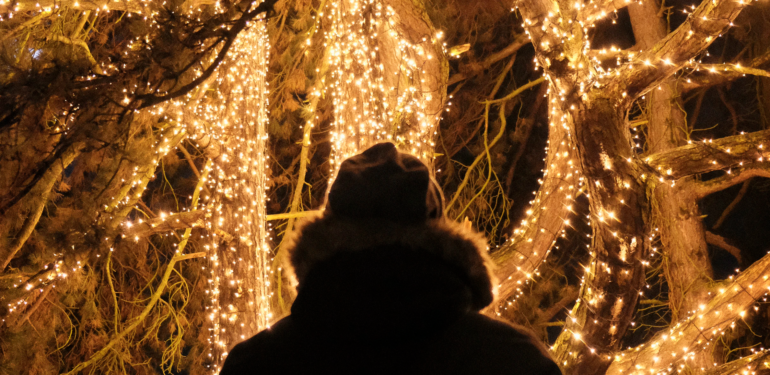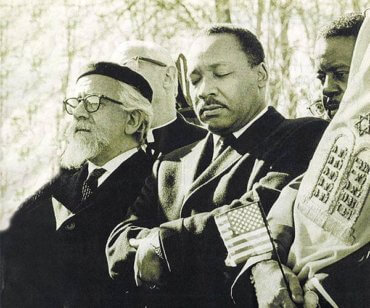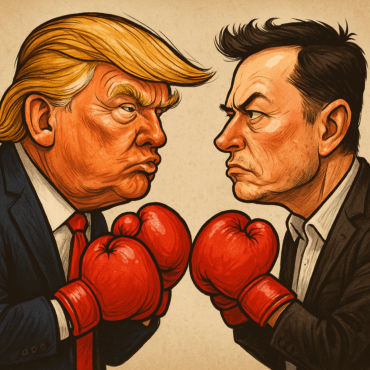
Is There Any Reason A Jewish Person Can’t Enjoy Christmas Lights?
Hi JITC-
Is there prohibition with a Jewish person enjoying Christmas lights since it’s not our holiday?
Thank you,
Ben F.
Dear Ben F.-
Here’s the thing about Christmas lights: pretty much everyone likes them. They’re pretty and they’re only around for a brief time so we don’t get too used to them. Objectively speaking, I think we can’t help but notice them and, unless one has some issues with Christmas in general, to enjoy them. I’ll admit that I enjoy them, and everyone to whom I mentioned that I was writing this article responded that they like them, too. (Okay, so “pretty much everyone” might be a premature conclusion based on my anecdotal experience but if you like Christmas lights, you’re certainly not alone!)
And yet, we have this feeling that it’s wrong to like Christmas lights. There’s a certain blog where people send their secrets written on postcards; it can be something small like an unrequited crush or something more serious like abuse. Years ago, a woman I know sent in a postcard saying that her secret was that she’s Jewish but loves Christmas lights. So they’re something of a guilty pleasure.
We may feel as if we’re being “naughty” by admiring Christmas lights but what does halacha say? I must confess that after doing a little research, the answer to this question didn’t land where I expected.
Here’s some necessary background information. I’ll take for granted that everyone knows that the Torah repeatedly prohibits idolatry, in the Ten Commandments and elsewhere. What some people may not know is that the Torah also prohibits benefitting from the ornaments of idolatry. Regarding the idols of pagan deities, Deuteronomy 7:25 tells us, “You shall not covet the silver or gold that is on them, nor take it for yourself lest you be snared by it, because it is an abomination to Hashem your God.” This mitzvah is discussed further in the Talmudic tractate of Avodah Zara.
Before we go any further, let me address the fact that I’m talking about idolatry while leading up to Christmas lights. Don’t infer from this that I’m going to end up equating Christianity with idolatry. The status of Christianity in Jewish law is actually quite complicated and subject to a three-way debate among the Medieval authorities Rambam (most stringent position), Tosfos (moderate position) and Meiri (most lenient position). Add to this that there are now widely divergent streams of Christianity; Catholicism is very different from Unitarianism. The bottom line is that Christianity is not an acceptable form of worship for Jews, which should surprise no one.
Before we return to the halachic process, let’s discuss the origin of Christmas lights. Originally, the practice in Germany was to decorate a tree with small candles. This practice, which dates back to the 16th century, is credited to Martin Luther, the initiator of the Protestant Reformation. In the 19th century, this tradition was brought to England by Prince Albert, husband of Queen Victoria, who had been raised in Germany. After a magazine published an illustration of the royal family gathered around an illuminated tree, the practice caught on, first in the UK and later in the United States.
Here’s the problem: candles are fire and trees are flammable, especially after they’ve been standing in one’s living room for two weeks. The result was that Christmas fires were not uncommon. This was why, in 1882, Edward Johnson suggested to his friend Thomas Edison that one might replace the candles with strings of brightly-colored electric lights. The idea didn’t catch on at first since many Americans were still wary of electricity but Christmas lights were popularized after President Grover Cleveland used them to decorate a White House Christmas tree in 1895. The first outdoor public electric light display was organized by the Pasadena Chamber of Commerce in 1920 and neighborhood displays have become increasingly common since the 1960s. File this history away; we’ll return to it.
Getting back to halacha, the Shulchan Aruch (YD 142:15) says that one is not permitted to listen to the music of idolatrous services or to stare at the ornaments of idols since doing so gives one pleasure. The Shach (17th century), one of the preeminent commentaries on the Shulchan Aruch, adds that one may likewise not smell the aromas associated with idols. Starting out, things look pretty stringent. Then, however, the Shach continues that one is only prohibited to stare at ornaments that are on the idol itself. Other ornaments that are set up for decorative purposes but that are not themselves worshipped are permitted. (He cites Tosfos and the Rosh as his sources.)
Similarly, the Ben Ish Chai (19th century) rules that the prohibition against benefitting from the decorations of non-Jewish religions only applies to ornaments that one would serve, such as by removing one’s hat or by bowing. Other ornamentation, which is not honored in this fashion, would not be subject to this prohibition. (He cites the Chochmas Adam as his source.)
So the first question is what kind of religion Christianity is considered in Jewish law, which is no simple question. Even according to the most stringent position, however, Christmas lights are not a religious object. One could argue that the tree itself has religious symbolism (we’ll have to leave that question and the legend of St. Boniface for another day), and perhaps Martin Luther intended the candles to serve as a religious metaphor, but the strings of colored lights with which people deck their homes in December are completely secular and one is permitted to gaze at them.
As stated earlier, I mentioned to several people that I was researching this topic. One of them asked me if I wanted to go out and look at the decorated houses. I hesitated because even if such a thing is permitted when you come across it, I felt uncomfortable with the idea of going out and looking for it. In my research, I didn’t find any traditional commentaries who addressed this particular aspect of the question but I saw one contemporary authority who commented on it. He said that he felt it would be inappropriate to actively pursue Christmas lights in order to admire them, though it would not actually be prohibited.
Finally, it should go without saying that even if it’s permitted to admire Christmas lights, it would be prohibited for Jews to decorate their homes with them in December, as this would violate the prohibition against copying other nations’ practices (Leviticus 18:3). To decorate one’s succah with such lights, however, should be permitted as the non-Jewish practice is specifically to use such lights in December.
Sincerely,
Rabbi Jack Abramowitz
Educational Correspondent
Follow Ask Rabbi Jack on YouTube
If you found this content meaningful and want to help further our mission through our Keter, Makom, and Tikun branches, please consider becoming a Change Maker today.







